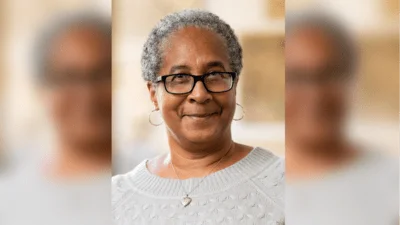Dr. Manish Khanna | Capitol Breathe Free
Dr. Manish Khanna | Capitol Breathe Free
- Chronic sinusitis affects 28.9 million American adults, or 11% of the adult population.
- Chronic sinusitis can cause bad breath and mouth breathing, among other symptoms.
- Balloon sinuplasty is a safe and minimally invasive procedure utilized by surgeons to address chronic sinusitis.
“The nose is a great filter for all the horrible things that we breathe in, whereas the mouth isn't,” Dr. Khanna told the Maryland State Wire. “By not using our nasal passages, we just start to mouth breathe, and it’s not a good environment for our oral health. Things tend to dry up more; we get a lot of dryness in our throat area, the saliva dries up quicker and that can lead to more issues with dental problems in the oral cavity as well. This can sometimes affect the sense of taste because of the dryness from all the mouth breathing that we're doing.”
According to the Mayo Clinic, physical symptoms of chronic sinusitis can include nasal inflammation, a runny nose, postnasal drainage, congestion, pain or swelling in the face, headaches, loss of smell and taste, a sore throat, bad breath, or fatigue.
People who suffer from allergies or chronic sinus problems are more likely to breathe through their mouths, which can lead to oral health issues, according to McCarl Dental Group. Mouth breathing dries up saliva, allowing bacteria and plaque to build up on the teeth, which can cause cavities, gum disease, and chronic bad breath. Regularly breathing through the mouth can also, over time, lead to strained jaw joints, snoring, sleep apnea, enlarged tonsils, and a higher risk for airway disorders, including asthma.
According to Cleveland Clinic, breathing through the mouth disrupts the regular flow of saliva, which typically plays a role in keeping your mouth clean. Dry mouth, pillow drooling and malocclusion also can occur from mouth breathing.
People experiencing symptoms of sinusitis lasting for more than a week are advised to seek a physician. An ENT specialist might recommend a saline solution or over-the-counter medication, and if those don't help symptoms improve, they might prescribe antibiotics, a corticosteroid spray or even recommend sinus surgery, according to NHS inform.
According to Capitol Breathe Free's website, Dr. Manish Khanna earned his undergraduate degree from the University of Maryland, Baltimore County. The following year, he completed postgraduate research at the National Institutes of Health (NIH). In 2002, he obtained his medical degree from Albany Medical College. Dr. Khanna then entered the otolaryngology residency program at Albany Medical Center, where he completed both his surgical internship and residency, serving as chief resident until 2007. After his residency, he pursued a fellowship in rhinology, specializing in advanced endoscopic sinus surgery, at the California Sinus Institute in Palo Alto, California. He completed this fellowship and achieved board certification in otolaryngology—head and neck surgery in 2008 before returning to the D.C. metro area.






 Alerts Sign-up
Alerts Sign-up